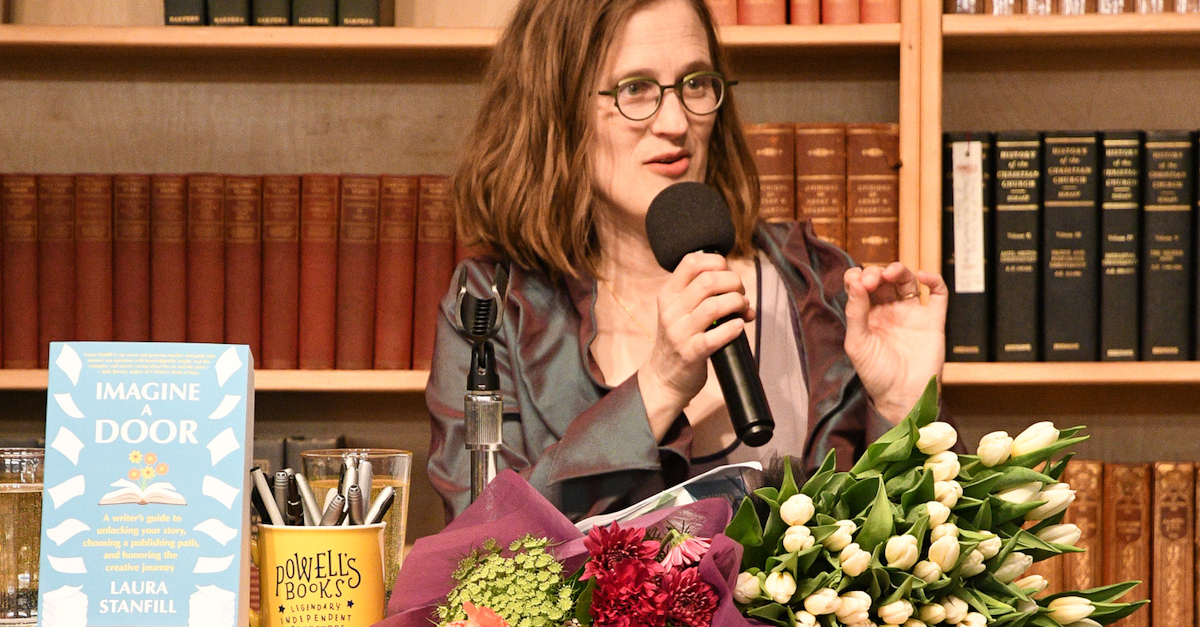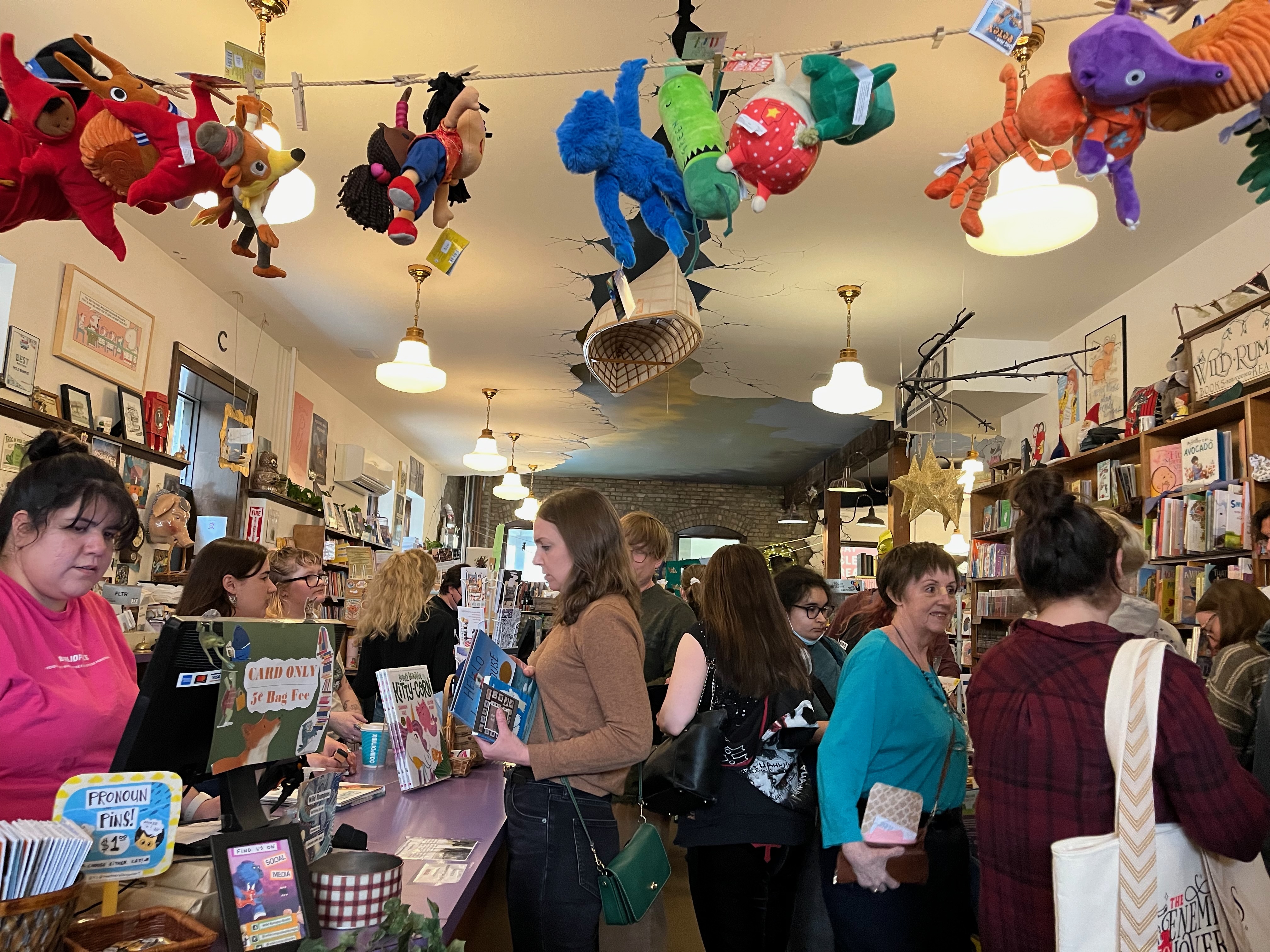Trust Your Instincts: Why Writing for Yourself Leads to Better Books
When we try to write something because we feel we ought to, not because we want to, we stack the deck against ourselves.


Today’s post is excerpted from Imagine a Door: A Writer’s Guide to Unlocking Your Story, Choosing a Publishing Path, and Honoring the Creative Journey by Laura Stanfill.
I started Forest Avenue Press in 2012 to publish the kinds of novels I love to read.
When I started, to give authors a chance, I read hundreds of pages of submissions that didn’t appeal to me. After all, I had been sitting on the other side of the editorial desk for years, dreaming of acceptance. How could I say no to a novel without reading 50 pages and seeing if the fifty-first was where the story really started?
Eventually I learned to trust my instincts. If a novel doesn’t interest me from the query letter and the opening pages, I probably don’t want to spend the next 18 months working on it. If it’s offensive to me in concept or execution, I don’t want to put my shoulder against it and move it forward into the world. Trusting myself made me a more efficient and honest reviewer of manuscripts.
This insight trickled into my writing life and helped me make a terrifying decision. After several years of writing, I cut my protagonist out of my novel.
Jean-Jacques Blanchard, my original story star in Singing Lessons for the Stylish Canary, had a mean streak and an overload of self-confidence. Everything came easily to him, as the oldest son of a master craftsman in a small village in France. Everyone liked him (well, except for me). His little brother Henri preferred the company of girls and wished to learn lacemaking. Henri was always sick or getting in trouble with the schoolmaster for not paying attention. A savvy developmental editor suggested that Henri ought to be the protagonist. The awkward one should inherit the family business because he doesn’t want to. That would raise the stakes immediately.
Slice, went my cursor, cutting deep into the story. Exorcising a bully of a brother.
Poor Jean-Jacques.
Although in truth he was given everything he wanted, so I didn’t feel so bad for leaving him out in favor of giving the story to the underdog. Singing Lessons, with Henri as the protagonist, came out from Lanternfish Press in 2022.
When I made the decision to eliminate Jean-Jacques, I had a total reframing to do. At first it felt overwhelming, but I had so much more fun imagining the new version. If this were a true 19th-century novel, of course a boy like Jean-Jacques would be the hero. The central focus of the plot. He had a confident swagger and good hair. But in my modern, magical version of 19th-century France, I could make the shy, curious boy the hero. It took an outside editor to adjust my trajectory, to help me get clearer on what I wanted to say. To teach me that I could write the kind of story I wanted to read.
Forest Avenue Press has a catalog of nearly 30 books, and many of them are sad or have hard moments. (Because plot! And life! Plus, joy falls flat without contrast.) At some point I grew into choosing projects that delight and inspire me. Books with characters I want to spend a year or two ushering toward publication, written by authors who have conjured a positive view of the world despite all the horrible things happening. I don’t publish for me so much as for community, but I can do that while picking manuscripts that don’t trigger existential dread every time I open the file.
These days, our press editorial guidelines state that we are looking for “literary fiction on a joyride and the occasional memoir.” When we’re open to unsolicited manuscripts, my committee of readers and I make explicit lists to give writers the inside scoop. Things we like. Things we really don’t like. That helps writers find us—or to bypass our open call if they aren’t a good fit.
What does this have to do with your project?
You’re committing to spend time with your story. We stack the deck against ourselves when we try to write something because we feel we ought to, not because we want to. You might lose interest too fast if you don’t truly love what you’re writing. Reading a trendsetting book and deciding to write your own witch story or post-apocalyptic tale or whatever’s hottest now can backfire because publishing is glacially slow. If you try to jump on a topic train, by the time you finish the manuscript, your project may feel outdated—likely by several seasons—to the agents and editors you query.
Dana Haynes, the thriller author, said it this way:
The First Reader for your story is you. You’d better enjoy it. Later (the gods willing), you’ll write for a literary agent, and for an editor at a publishing house, and for a publicist, and for a bookstore buyer, and for a book lover. But first you gotta write for you. Find a protagonist and a story that appeals to you. You’re going to be living with this story and these characters.
That’s another way of saying write for yourself. Not for an agent who doesn’t know you exist (yet). Not for a publisher whose taste you can only guess from a distance. Not for your writing group because they’re writing a certain genre or style.
And if you get feedback from a friend or editor suggesting you make a sweeping change, ask yourself: Is that the story I’ve been meaning to tell all along? Is that how I want to spend my time?
If not, let the advice go. Because you are your own first reader, like Dana says. When other voices come into your process, you have to center your vision while trying to imagine the story from the outside.
If this reader feels this way, is my writing doing the work I expected?
Why or why not?
What needs to change?
What needs to stay?




































![How to Find Low-Competition Keywords with Semrush [Super Easy]](https://static.semrush.com/blog/uploads/media/73/62/7362f16fb9e460b6d58ccc09b4a048b6/how-to-find-low-competition-keywords-sm.png)











![How Marketers Are Using AI for Writing [Survey]](https://www.growandconvert.com/wp-content/uploads/2025/03/ai-for-writing-1024x682.jpg)






































































![The Future Consumer: State of Consumer Trends in 2025 [Data from 700+ Consumers]](https://www.hubspot.com/hubfs/consumer%20trends%202023-1.png)



















